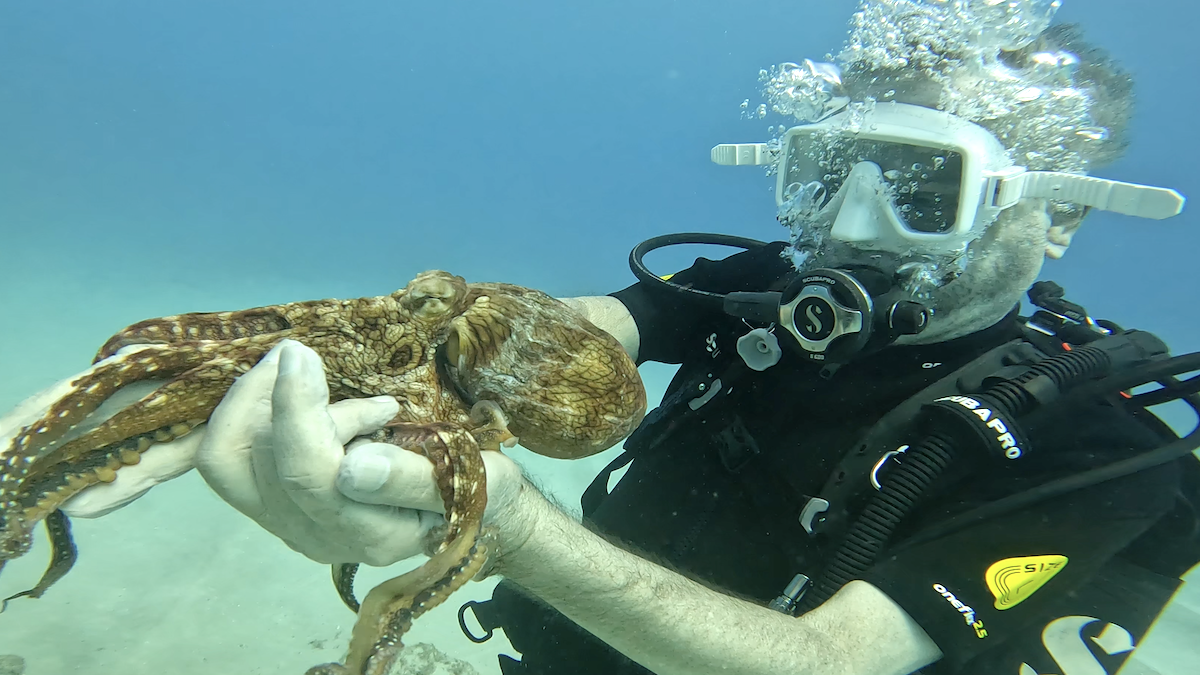
Dying out loud
A terminal ALS diagnosis led Dave Warnock to a question: Would he spend his remaining time trying to stay alive, or living?
A few weeks ago I played with an octopus. It was not in some waterpark or controlled aquarium. It was in the wild. It was in the Pacific Ocean off the coast of Hawaii.
It was quite a moment.
I’m all about the moments, because I feel like that’s really all we have. You may have seen this quote: “We do not remember days, we remember moments.” If you look back through your life and reflect upon the memories and experiences collected there, you will probably realize it’s the isolated moments you remember. Yes, the whole week in Hawaii was amazing, but it was that singular moment with an octopus wrapping its tentacles around my arm that took my breath away.
Life is made up of a series of random moments that are not always connected to one another, or to anything. As a young Christian, I was taught that God had a wonderful plan for my life. He formed me in my mother’s womb, and I was worth more than the sparrows, and all of the hairs of my head were numbered. God counted them. Himself.
In later years, I taught those concepts as a pastor. I believed them. I believed that we served a God who was present and active in our lives. I believed in a God who answered prayer, and if we trusted him he would lead and guide us, and that the days of our lives would fit together like some gigantic jigsaw puzzle to form the plan that he had for us.
Now I know that isn’t true.
I see no evidence in the world around me that would cause me to think there’s a God doing anything for anyone anywhere. It seems to me that life is random and chaotic, and all too brief.
What made the octopus experience even more remarkable was that I was not even supposed to be there. I was supposed to be dead. Or at least, I was supposed to be immobilized in a bed or a wheelchair with a breathing apparatus attached to me and a feeding tube serving me my dinner.
What made the octopus experience even more remarkable was that I was not even supposed to be there. I was supposed to be dead.
In February 2019, after several months of wondering what was wrong with me, googling my weird symptoms, and multiple doctor visits, I went for one final test, and came out of the room with a terminal illness diagnosis. They told me I had ALS. Lou Gehrig’s disease. They told me I had three to five years to live, with the last year or two looking like Stephen Hawking.
I was stunned. I wasn’t sad or angry, just stunned. Until then, I’d been relatively healthy for a man in his early 60s. I was living the best years of my life in Nashville Tennessee, looking forward to more of the same. And suddenly I was told I was going to die.
I mean, we all know we’re going to die. We all know none of us gets out of this alive. We all have that clock ticking. It’s just that I have the clock sitting on my desk, staring at me every day.
We have two lives, and the second one begins when you realize you only have one.
Mario D’Andrade. “My Soul Has a Hat”
As I walked home to my apartment that gray February day, it occurred to me that I had two choices: I could spend the remainder of my time scrambling around for any kind of medications or treatments that don’t exist, trying to stay alive. Or I could spend my time living. I somehow knew that I couldn’t focus on both.
I chose living.
And for me, living is about finding the moments. The moment can be as spectacular as watching a live octopus wrap its tentacles around my hand, as sweet as holding my baby granddaughter for the first time, or as simple as having a conversation with a dear friend over a beer. They are all moments, and they are all valuable.
So I guess the question is this: Will we look for the moments? Will we give them a chance to happen? Or will we be too busy or stressed or anxious with all that comes with daily living? It shouldn’t take a terminal diagnosis to get us to take stock, to pause, to reflect on what’s really important. But it often does. And I’m doing it out loud.

